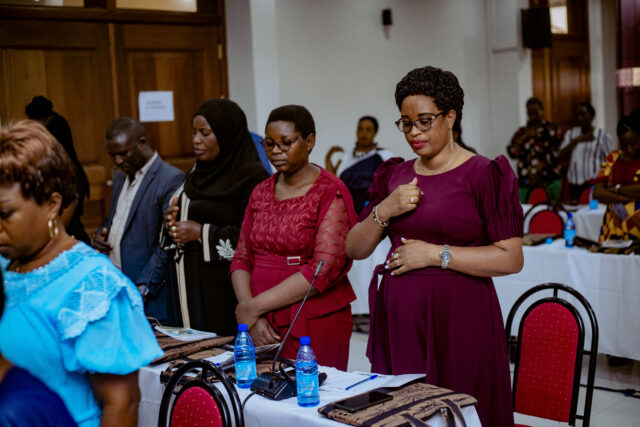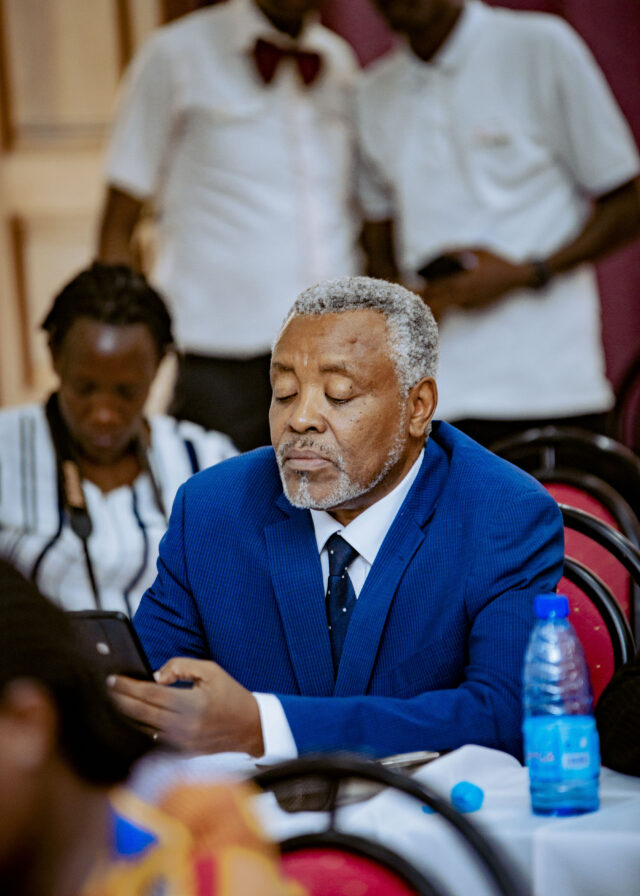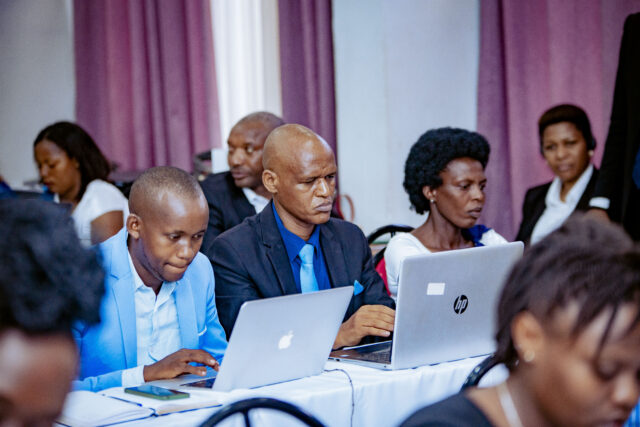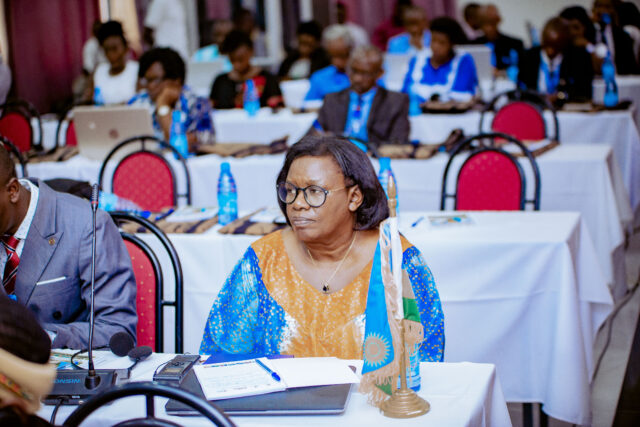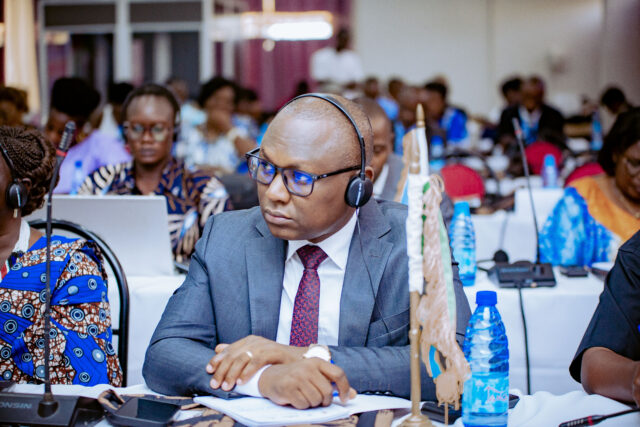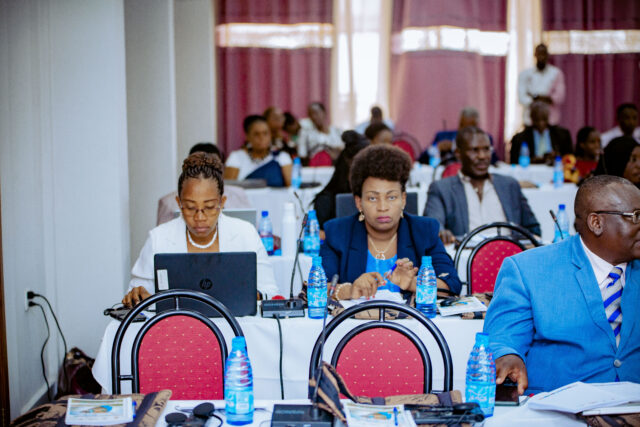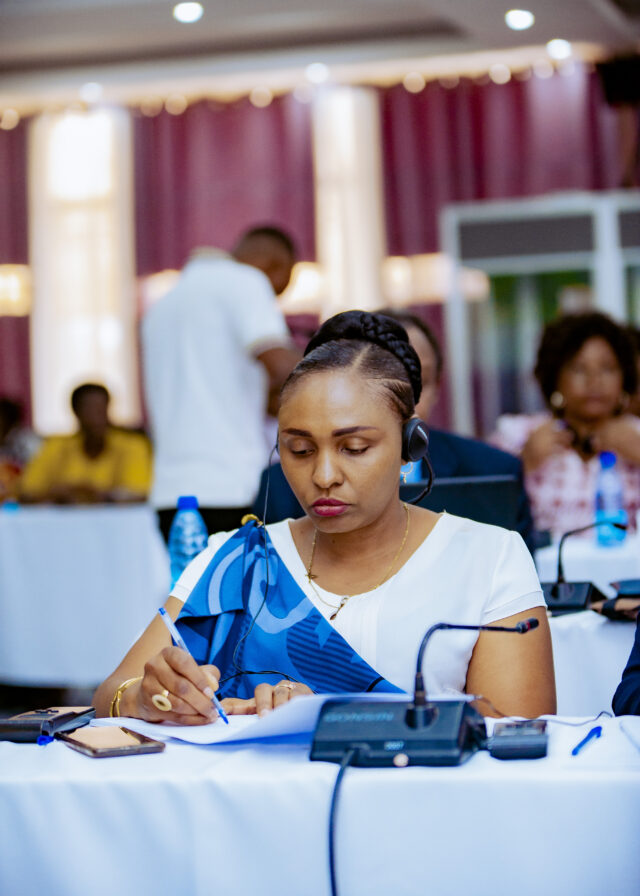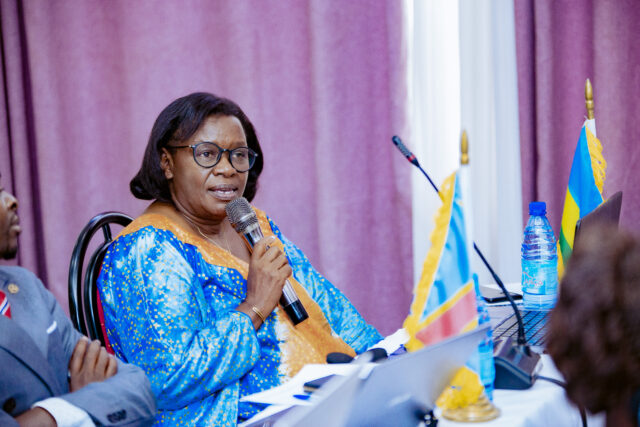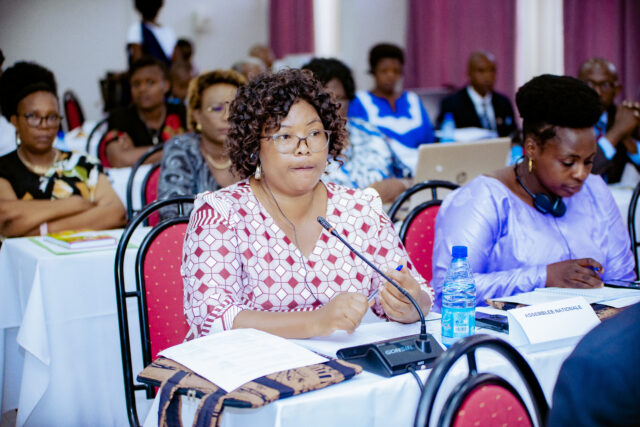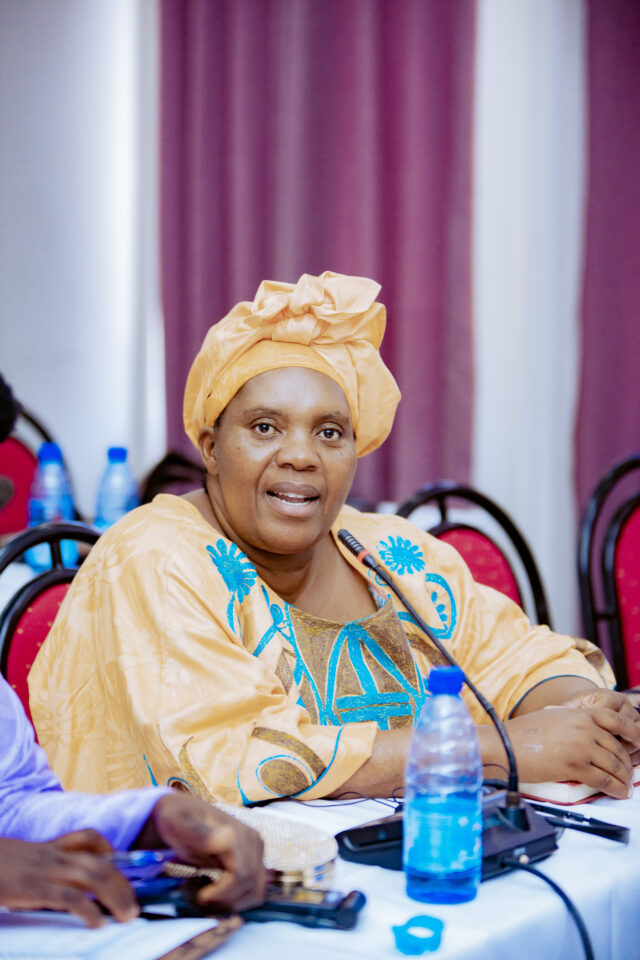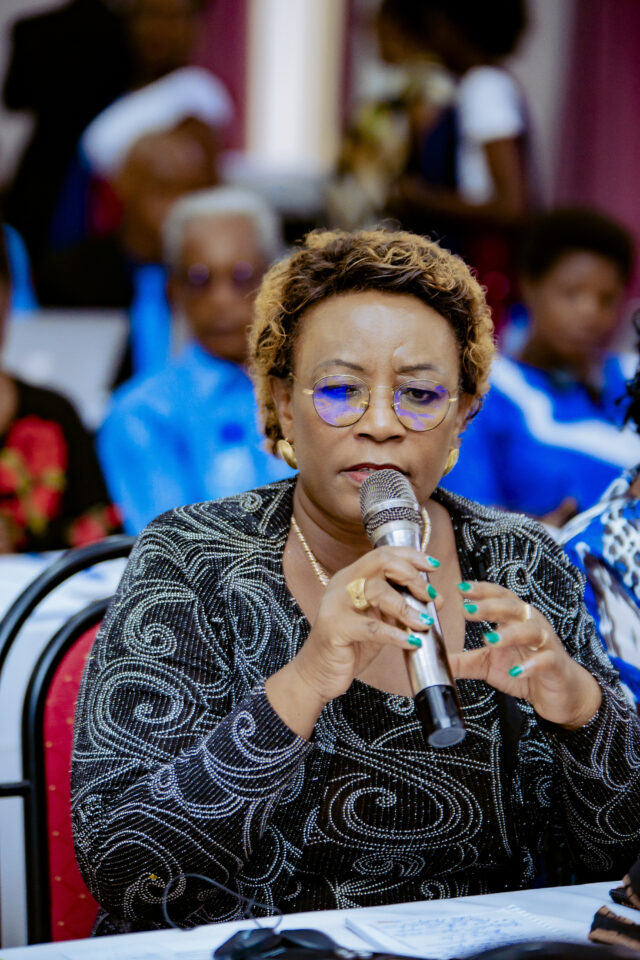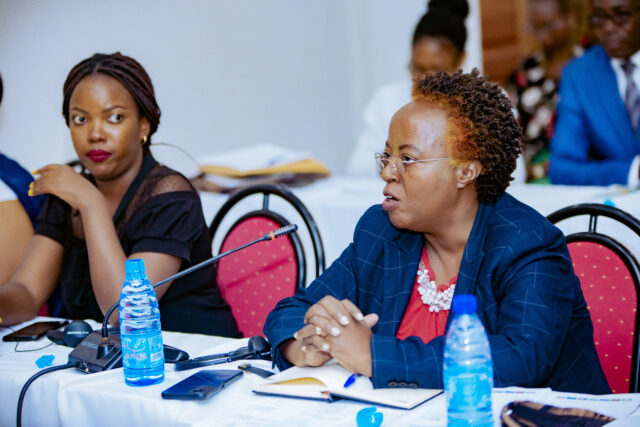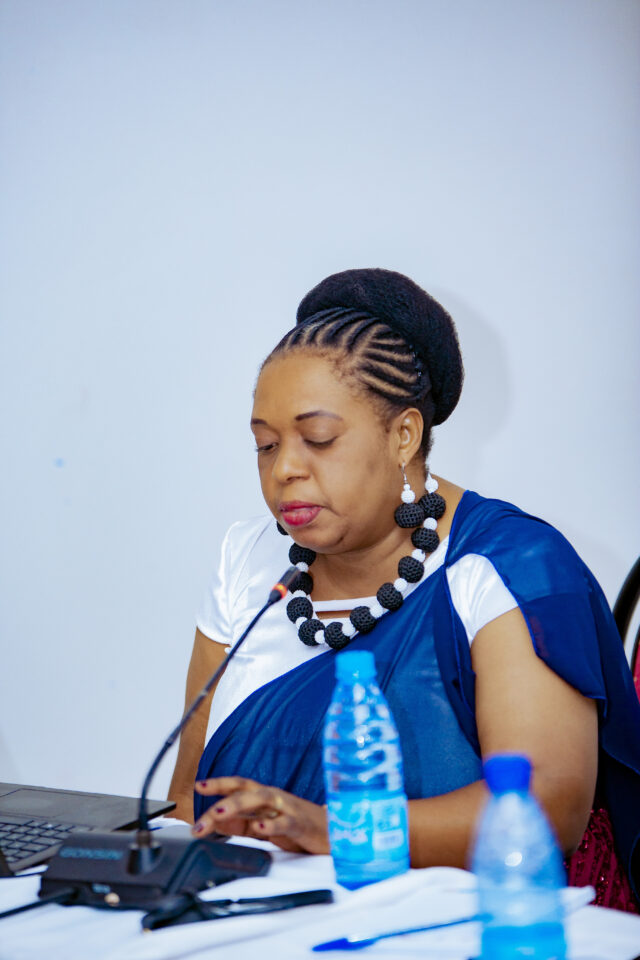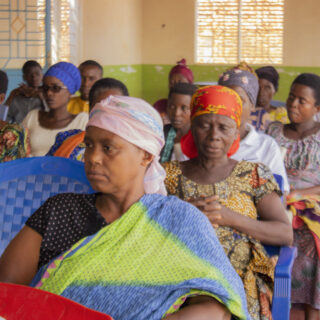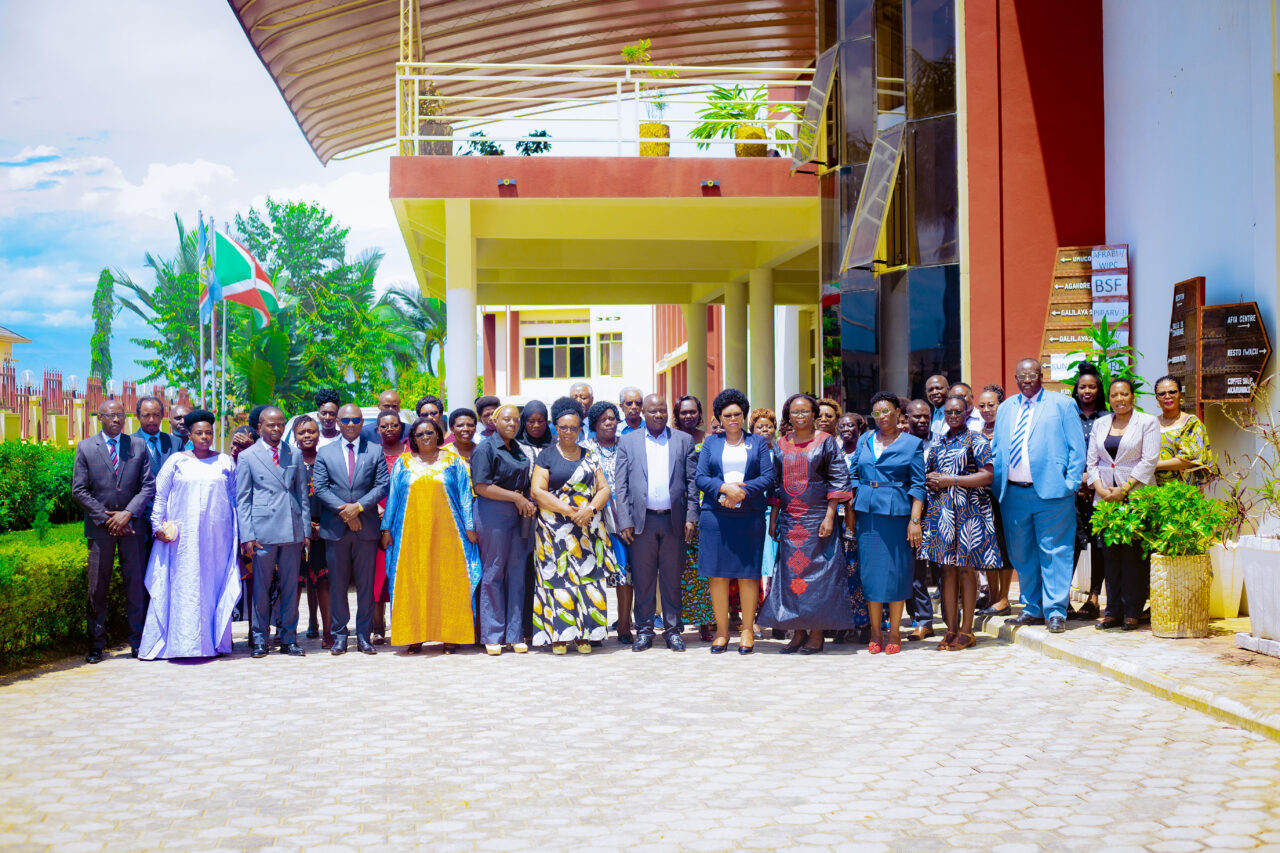
- A two-day conference was recently organized in Bujumbura by the Association of Repatriated Women of Burundi (AFRABU) in collaboration with the Women’s International Peace Centre (WIPC) and CORDAID.
- The conference aimed to discuss ways to enhance women’s participation in the elections.
- The event brought together various stakeholders including parliamentarians, representatives from the Organization of African First Ladies for Development of Burundi, sectorial ministries, the National Electoral Commission, political parties, UN agencies, International Non-Government Organizations, Civil Society Organizations, religious denominations, and media.
Godéliève Manirakiza, National Director of AFRABU, explained that “the workshop was organized to learn from successful practices in neighboring countries and implement them in Burundi. The objective be it to ensure that women are adequately represented in the electoral process and decision-making positions.”
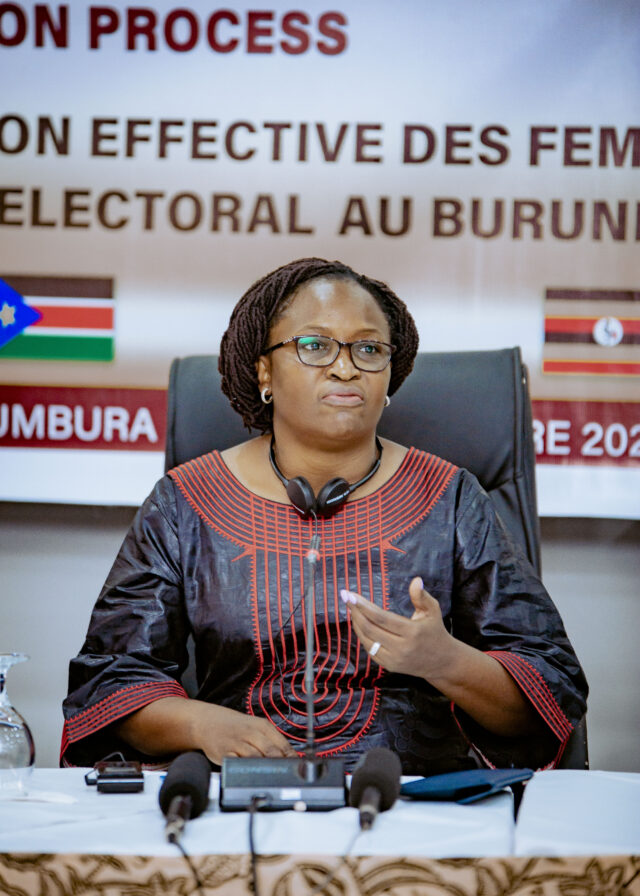
In her remarks, Ms. Juliette Lill, WIPC Deputy Executive Director, acknowledged the challenges associated with elections in the region and emphasized the importance of strategies to involve women in creating a peaceful electoral environment. She said : “This conference is expected to yield impactful results that could be used to increase women’s participation in decision-making roles in our countries.”
Cultural Barriers and Lack of Resources Impede Burundian Women’s Participation in Elections and Decision-Making Positions
Godéliève Manirakiza highlighted that one of the reasons for the low participation of Burundian women in elections and decision-making positions is the cultural barriers that prevent women from asserting themselves as leaders and lack of resources for campaigning. Although the Burundian constitution reserves 30% of positions for women, this quota is often only met in high-level institutions and not at the community administration level.
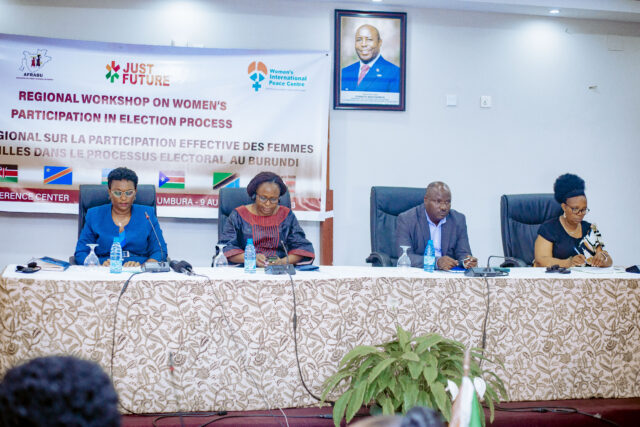
Mrs. Marie Rose TIRI, Advisor to the Ministry of East African Community Affairs, Youth, Sports, and Culture in Burundi, mentioned that the Treaty establishing the East African Community recognizes the importance of gender equality and the role of women in socio-economic development. She recommended updating the EAC Gender Policy with accurate statistical data and making the percentages of women’s representation at decision-making or elective positions binding for EAC Partner Countries.
Mrs. Donavine Niyonsaba, General Director for the Promotion of Women and Gender Equality at the Ministry of National Solidarity, Social Affairs, Human Rights, and Gender, expressed that while the 30% quota for women’s representation is a positive step, it is not sufficient considering that women make up more than 51% of the population.
Burundi Urged to Take Action: Recommendations for Boosting Women’s Representation in Electoral Process
During the conference, participants learned from the experiences of other countries in promoting women’s leadership. For example, Tanzania’s constitution mandates a certain percentage of seats for women, girls, and youth in decision-making bodies, and in elections, women vote for women and youth vote for youth. In Rwanda, women’s electoral campaigns are financially supported by the government up to a certain extent, providing them with resources like transportation vehicles. In the Democratic Republic of Congo (DRC), gender parity is enshrined in the constitution, which is supported by laws that repress gender-based violence and provide compensation for various crimes.
According to the recommendations mentioned in the conference report, it is suggested that Burundi takes certain actions to enhance women’s participation in the electoral process. These actions include revising the electoral code and communal law to ensure women’s representation, specifically by alternating names of women and men on electoral lists. Additionally, the government and its partners are encouraged to offer support and assistance to female candidates. Considering the new administrative division of Burundi, it is important to promote the representation of women in technical positions at the communal level, especially with the fact that there will be multiple departments in each commune.
